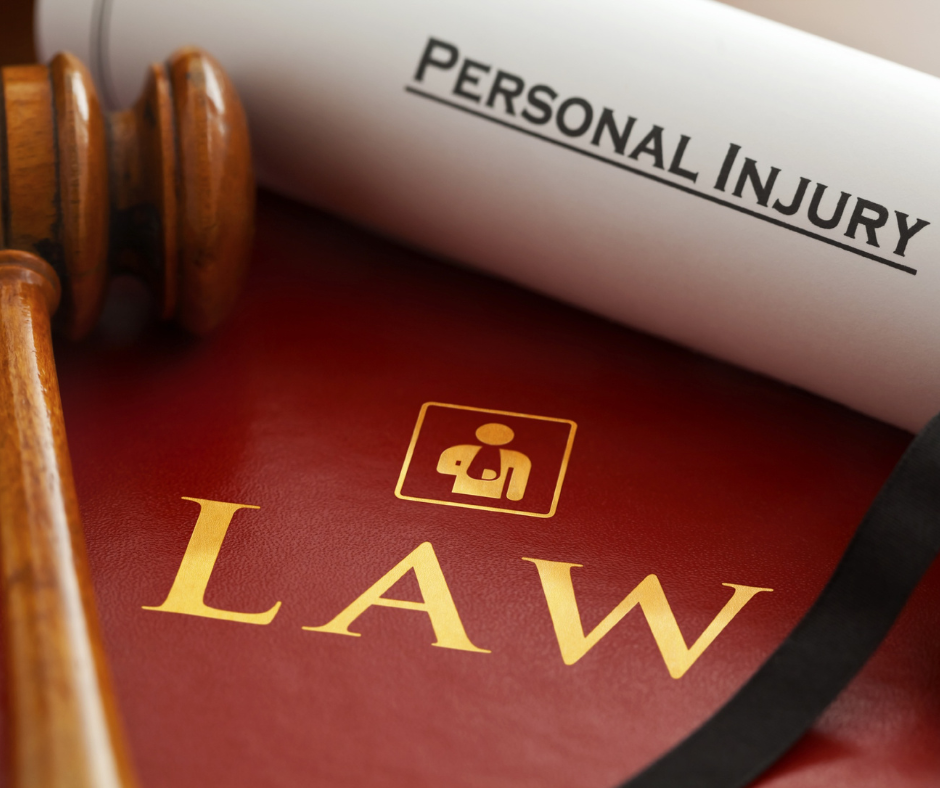- in Blog by
- |
- 0 comments
Understanding Personal Injury Lawsuits in South Carolina


Personal injury lawsuits that involve life-changing events like auto accidents must always be handled by a knowledgeable and emphatic personal injury lawyer Charleston SC. Many factors make personal injury lawsuits complex, including that insurance companies have dedicated legal teams that will do everything they can to reduce the cost of settlements and minimize liabilities. While it's never personal, the work of the opposite legal team will always be against the plaintiff's claims, and that's why you should be ready with an experienced attorney in personal injury law in Charleston SC.
How Does "Pain and Suffering" Work?
The term "pain and suffering" is commonly used to refer to the noneconomic damages of mental anguish and physical injury. It encompasses the physical and mental suffering that results from an injury. Loss of enjoyment of life is one example of the non-monetary damages that fall under this umbrella term.
Damages for loss of enjoyment of life reflect the aggravation and distress one feels when they are prevented from engaging in past pleasures.
It's normal to feel like your world has turned upside down after suffering injuries in an accident that wasn't your fault. Suddenly, you must schedule your life around medical procedures and doctor's visits, keeping you from returning to work while you focus on getting better.
You're suffering from physical discomfort, mental distress, and emotional strain. You may have heard that in addition to medical bills and lost wages, you can seek compensation for your emotional distress by filing a personal injury claim.
Understand that two types of suffering can arise from a personal injury case: physical and emotional. What does each term mean?
Physical
A victim's physical suffering because of their injuries. It includes the present and future difficulties they face because of the defendant's negligence and any difficulties they may face in the future.
Mental
The victim's mental state is affected by the daily reality of living with pain and physical injury.
They probably feel a wide range of emotions, including anxiety, shock, hopelessness, humiliation, anger, and fear. In a nutshell, the term "mental pain and suffering" refers to any distressing feelings the victim may be experiencing because of the accident. Everything that has come up in your mind because of the shock of the accident is included here.
Sleep disturbances, mood swings, anger, and depression are all symptoms that can occur when a victim is overwhelmed by emotional distress. PTSD, depression, and a general lack of interest in life are some other symptoms that may be present.
Many years, if not a lifetime, may pass before the victim finally finds relief from the physical and mental pain and suffering.
Most people have never been a party to a legal dispute. Consequently, many people who have been injured in an accident and their loved ones are hesitant to file a personal injury claim.
A lawsuit might go to trial before a jury, but in practice, this rarely happens, and the litigation process shouldn't be traumatic for the parties involved. From meeting with an attorney to settling your case, each step of the personal injury lawsuit process is outlined below.
1. Consulting with a Lawyer About Your Accident
After seeking medical attention for injuries sustained due to another's negligence, the next step is to speak with a personal injury lawyer to determine whether you have a case.
Do not forget to bring any notes, medical records, and other paperwork you may have taken that pertain to your situation. Consultations with personal injury attorneys are typically free of charge, so you won't have to worry about shelling out money right off the bat.
2. Assessing the Legal Counsel
The outcome of your injury case may hinge on whether you have the right attorney representing you. Talk to the lawyer about their experience and success rate with cases like yours, how they handle client communication, and anything else on your mind.
The lawyer will ask you many questions at the first consultation to get a feel for your situation. However, be wary of any lawyer who guarantees a specific settlement amount in the first meeting. To determine the worth of your case, a reasonable attorney will need more time.
3. Hiring Legal Defense and Understanding How They're Compensated
Personal injury lawyers typically don't get paid unless you do. When your case concludes, and you receive compensation, your attorney will receive a fee equal to a percentage of that amount as payment for their services.
If you decide to retain legal representation, you'll be asked to sign a client contract outlining the terms of your relationship and the agreed-upon fee. Therefore, answering all your questions about the fee is essential before signing the contract.
4. Case Investigation
Your lawyer will investigate your case to learn what happened to you and the full scope of your injuries, damages, and associated expenses. Then, the insurance company will be contacted, and a lawyer for the at-fault party may be consulted if necessary.
You can rest assured that your lawyer will keep you updated on the status of the case and any negotiations or other significant developments. Getting the care, you need and returning to your routine as soon as possible should be your top priorities.
5. Reaching a Possible Settlement
Personal injury claims are often settled out of court. Your lawyer will speak with the insurance company representing the negligent party.
Most of the time, the insurance company will make a settlement offer, and your lawyer will advise you on whether to accept the offer. A lawyer's opinion is valuable, but whether the settlement is satisfactory is up to you. If you've been injured and want to know how much your case is worth, click here.
6. The Pretrial Procedure
Your lawyer will take the matter to court if a fair settlement cannot be reached. A judge will then establish time limits for each step of the litigation. Depending on the circumstances of your case, this could take anywhere from several months to several years.
7. Mediation
Requests for mediation, an alternative dispute resolution, can be made at any proceeding stage. A mediator acts as a referee between the parties and brings in the lawyers for both sides. As the mediator facilitates, each side makes its case and attempts to reach a compromise. However, the parties involved in a mediation session are under no obligation to accept the mediator's proposal.
8. The Courtroom
Your attorney will argue your case in front of a judge or jury, and the other side (the defendant) will present their defense afterward. The judge or jury hears evidence and arguments from both parties and then decides who is liable for the harm and injuries you suffered and how much the defendant must pay.
